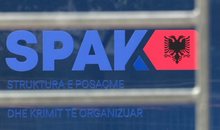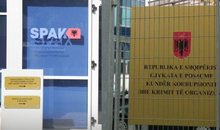
Germany makes changes to the Blue Card, more opportunities for immigrants

Germany has introduced some new changes to its Blue Card, which is a residence permit throughout the European Union, designed specifically to attract skilled workers from third countries, in areas where there is a shortage of labor in the countries of EU.
The German government last week approved several changes to its immigration policies in an effort to attract more foreign workers, reports SchengenVisaInfo.com .
The changes include a new residence permit for jobseekers with a validity of three years and the removal of some bureaucratic procedures, including the creation of new facilities for obtaining an EU blue card in Germany.
Lower the salary threshold
Among the main changes that the regulation of this document will pass is that the salary threshold will be lowered, so that more foreigners can come to Germany with an EU blue card, even in cases where they are offered a lower salary. than the current threshold. .
The minimum salary for a German blue card is €56,400 at the moment. At the same time, until now, those who wanted to move to Germany under this legislation, who were offered a lower salary, had to seek approval from the German Federal Employment Agency in order to be provided with the document.
"In professions where vacancies for e.g. doctors, engineers, natural scientists, mathematicians and IT specialists cannot be filled due to the lack of qualified personnel, applicants need a job offer that provides an annual gross income of only €43,992", explains Federal Foreign Office.
To date, it has not yet been revealed how much the salary threshold will be lowered.
In other EU countries, the salary threshold is much lower than in Germany. For example, the monthly salary in Poland for holders of this card is €15,446, €16,700 in Hungary, €11,408 in the Czech Republic and €13,776 in Latvia.
Knowledge of the German language is no longer mandatory
Applicants for a blue card will no longer be required to show proof that they have mastered the German language at a certain level.
Më parë, ata që mund të dëshmonin se kanë një nivel B1 të njohurive të gjuhës gjermane, mund të merrnin një leje vendosjeje vetëm pas 21 muajsh qëndrim dhe punë në Gjermani. Ata që kanë njohuri nën këtë nivel mund të marrin një kartë blu të vlefshme për kohëzgjatjen e kontratës së tyre të punës dhe tre muaj shtesë përtej kësaj.
Duhet të shkurtohet kohëzgjatja e përvojës profesionale
Deri më tani, ata që dëshironin të punonin në Gjermani me kartë blu duhej të tregonin prova se kishin përvojën e nevojshme në sektorin për të cilin iu ofrua një punë në Gjermani.
Tani, mjafton të kesh një diplomë në një sektor të caktuar për të aplikuar për një leje të tillë.
“Përveç kësaj, do të krijohet një prag i ulët i pagës minimale për fillestarët e punës me diplomë akademike. Kjo e bën më të lehtë fillimin e punës për profesionistët e rinj”, shënon projektligji për ndryshimet, që do të thotë se për këtë për këtë kategori personash, kërkesa për pagë minimale do të jetë edhe më e ulët se për ata që kanë përvojë.
Ndryshimi i punëdhënësve dhe lehtësimi i familjes
Një tjetër lehtësim që do të krijohet me Kartën Blu të përditësuar, është duke bërë të mundur që shtetasit jo-BE që punojnë në Gjermani me një kartë të tillë të ndryshojnë punëdhënës brenda Gjermanisë, por edhe për ata që kanë një kartë blu të lëshuar nga një vend tjetër i BE-së.
"For holders of an EU Blue Card, changing employers will be simplified and regulations will be created for holders of an EU Blue Card issued by another EU member state to exercise short-term mobility and long-term within the EU in the Federal Republic. of Germany", the draft law states.
At the same time, it will become easier to bring family members to Germany with an EU blue card, although more details in this regard remain to be revealed in the near future.
Latest news


Posta e mëngjesit/ Me 2 rreshta: Çfarë pati rëndësi dje në Shqipëri
2025-05-09 06:45:46

How did LaCivita change the DP campaign? Berisha: He studied the opponent
2025-05-08 22:49:51

David defeats Goliath
2025-05-08 22:15:50

Journalist: There are SPAK infiltrators in party headquarters
2025-05-08 21:55:15
Who is the new Pope?
2025-05-08 21:48:13
Berisha finally reveals when he will retire from politics
2025-05-08 21:33:46


LaCivita in Lezha: Albanians will fire Edi Rama from his job
2025-05-08 21:11:20


Berisha: LaCivita chose us because he believes in Reagan's program
2025-05-08 20:48:40
He rejected America to serve Pogradec, Genti Çela tells about life in "Elevate"
2025-05-08 20:26:28




Pope Leo XIV greets the faithful for the first time in St. Peter's Square
2025-05-08 19:29:33




Photo session with LaCivitta in Tirana: For Great Albania
2025-05-08 18:40:18
Source: DASH decision a personal victory for Berisha
2025-05-08 18:30:10
Take off those crazy glasses and see where you've taken him?
2025-05-08 18:02:47
LDK files criminal charges against members of the incumbent Government
2025-05-08 18:02:00







BIRN analysis: Tirana, the determining district for the future majority
2025-05-08 16:04:03




Chris LaCivita's contract with the DP, Berisha: 100% correct and clean
2025-05-08 15:11:11

"These are the peak days", Berisha reveals when he will travel to the USA
2025-05-08 14:45:25


Endless boxes with filled-in ballots, DP demands separation of votes from Greece
2025-05-08 14:11:12


Photo/ Who are the 3 associates of Talo Çela arrested in Dubai?
2025-05-08 13:37:09

Hetimi për krimet zgjedhore, Altin Dumani zbarkon në Prokurorinë e Shkodrës
2025-05-08 13:06:21
DASH paves the way for Berisha, Alizoti: Great news on the eve of Great Albania!
2025-05-08 13:03:48

"Freedom works", DP welcomes the US position
2025-05-08 12:48:07

Black smoke rises from the Sistine Chapel, the Vatican still without a Pope
2025-05-08 12:26:18





Davide Pecorrelli extradited to Albania
2025-05-08 11:29:04
'May 11, Albania will react', Xhaferri: Electoral criminals will pay
2025-05-08 11:21:46

Gjin Gjoni: Non Grata fell, Rama should get ready to go to McGonigal
2025-05-08 11:01:54
May 8th deadline for immigrants to vote in Greece extended by one day
2025-05-08 10:48:42
Collapse of massive chrome structure, still no trace of 29-year-old
2025-05-08 10:40:04
Vehicle bursts into flames in Paris Commune
2025-05-08 10:25:43
He gave land to his father and cousin, Basir Çollaku denounces the SP candidate
2025-05-08 10:16:16




Electoral Crimes/ BKH agents and Police conduct checks in Shkodra
2025-05-08 09:19:13
3 associates of Talo Çela arrested in Dubai
2025-05-08 09:02:28
Mouse in the owl's claws, Chris LaCivita responds directly to Rama
2025-05-08 08:45:40
Foreign exchange, how much foreign currencies are sold and bought today
2025-05-08 08:30:38
BIRN: Organized crime, the 'invisible party' of the Durrës elections
2025-05-08 08:26:35
Horoscope, what do the stars have in store for you today?
2025-05-08 08:08:15
Cloudy and rainy, what the weather is expected to be like throughout the day
2025-05-08 07:52:13
Posta e mëngjesit/ Me 2 rreshta: Çfarë pati rëndësi dje në Shqipëri
2025-05-08 07:40:16


Rama attacks Bardhi: Fier cannot be represented by the world's gas
2025-05-07 22:36:22



EU calls on Israel to lift humanitarian blockade in Gaza
2025-05-07 21:42:34
"Russia is "asking for a lot"! Vance calls for direct Moscow-Kiev talks
2025-05-07 21:20:16





Bank of Albania sets limits on home loans, Sejko: The maximum will be 85%
2025-05-07 20:16:10


